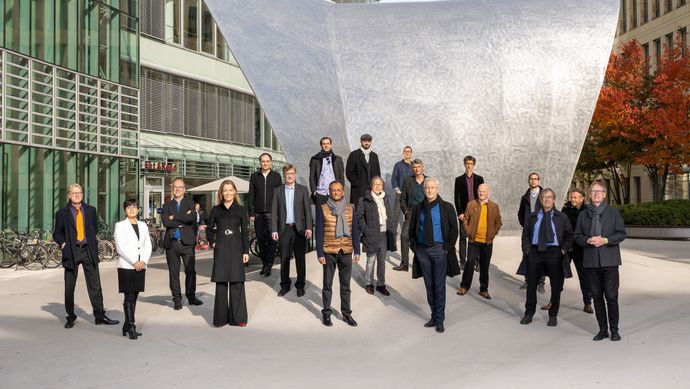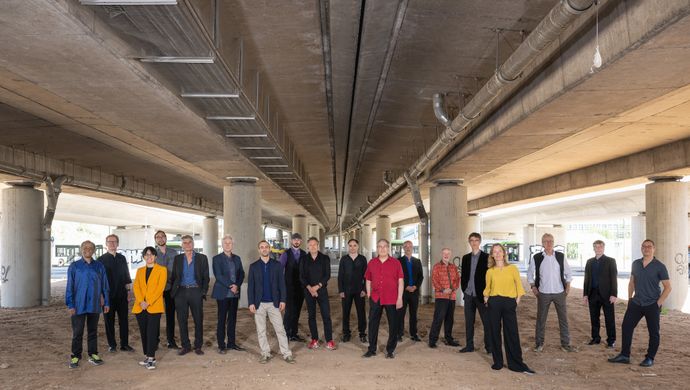Three questions to Ryoji Ikeda
January 19, 2024
In season 23-24 three new works will have their (world) premiere with us, written (partly) on commission by the Muziekgebouw and supported by Ammodo. Music journalist Frederike Berntsen asks each of the composers the same three questions about their new composition. In this edition, composer and artist Ryoji Ikeda has the floor.
What characterizes you as a composer?
First of all, I’ve never been trained as a composer or artist. Everything is self-taught. Therefore, I cannot really read a score. I remain a kind of amateur, but I do a lot of stuff. It’s important for me to think of myself as a composer; a composer who will never be able to read a score.
I’m an artist. So my job is to create an experience. Sometimes through two-dimensional works on the wall, sometimes through music, sometimes through a video or installations. I really like to combine mathematical, very abstract notions of a structure, and also physical experiences. If I make music, I need a listener. Music is also a vibration of air. So, physical experience is really important. Without that I could simply write a book or just create a concept, explain things with words.
What did you want to write and why?
I cannot tell you anything about the concept. There is no concept. In my work, I consider how the musicians behave. The gesture. Not only how they play their instruments, how they generate the sound. I consider what they look like and how they move. Their movement is so important for me.
One of my previous works, for example, a duet, does not use instruments, just hand clapping and footsteps of two people, and a very precise counterpoint. What you see and what you hear is completely disconnected, because it’s so fast and so detailed. There’s no story. There’s no mood. It’s like a machine. It’s crystal clear and beautiful, without using any instruments, just the body. But, in the end, it’s not really a machinery. It’s about subtle nuances, and the performers have a certain freedom within a very strict composition. That’s what I like. One of the new compositions for Ensemble Modern will be a bit like that, partially including choreographic, visual elements.
What can the listener expect?
In total, there will be three pieces. One of them consists of three duos. Two of them with two violins, one with two violas. For the piece we will use a long, narrow table with a sheet of paper on top of it, which is the score. The players have to move along the table to read the score, one of them on each side of the table. One of them can play the score from left to right, but the other player has to play it in the inverted direction, because there are only five lines. They have to walk from two starting points. At some point they intersect and cross over. This is kind of a climax. It’s not like a piece where you have to walk from point A to B without any reason - the choreography is part of the composition, one essential parameter. Sonically, it’s very harmonious, which is very important because you should really be able to feel it.
The other two compositions are for nine strings. Purposefully, I decided on nine people, because I wanted to work with symmetry. In the centre is the double bass, with a quartet on either side. I line them up in a straight line, because it is about showing the gestures to the audience. The stage is simple, there will be fixed light. It’s just very conventional classical music. Most importantly, I don’t use any microphone. You just bring your precious violins and then you just play.
My motivation is to challenge conventions. It’s about that challenge: to see something unusual that should be a little bit beautiful at the same time. It’s not just about an unusual concept, we are so tired of that. It’s about good music, and also about the players. They have to enjoy it.
The information in this interview has been distilled from a previous interview with Ryoji Ikeda by David Rittershaus, published in Ensemble Modern's Magazine No. 59 - 2024/1.






